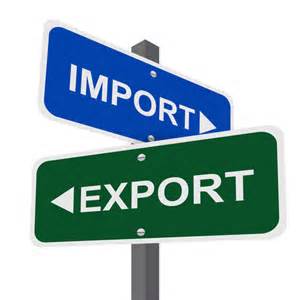How can Export Controls affect research?
There are several scenarios that may require an export license including, but not limited to:
- A physical transfer/disclosure of an item outside the U.S.
- Any transfer/disclosure of a controlled item or information within the U.S. to a foreign national (Deemed Export)
- Participation of foreign national faculty, staff, or students in affected research
- Presentation/discussion of previously unpublished research at conferences or meetings where foreign national scholars may be in attendance
- Research collaborations with foreign nationals and technical exchange programs
- Transfers of research equipment abroad
- Visits to your lab by foreign national scholars
What types of projects raise Export Control concerns?
Any research activity may be subject to export controls if it involves the actual export or "deemed" export of any goods, technology, or related technical data that is either:
- "Dual use" (commercial in nature with possible military application); or
- Inherently military in nature
 Research in the following areas can frequently require export control:
Research in the following areas can frequently require export control:
- Engineering
- Space sciences
- Computer Science
- Biomedical research with lasers
- Research with encrypted software
- Research with controlled chemicals, biological agents, and toxins
In addition, any of the following will raise export control questions for your project:
- Sponsor restrictions on the participation of foreign nationals in the research
- Sponsor restrictions on the publication or disclosure of the research results
- Indications from the sponsor or others that export-controlled information or technology will be furnished for use in the research
- The physical export of controlled goods or technology is expected
Questions to Consider:
- What is the nationality of researchers INCLUDING professors and research assistants (grad students/post-docs)?
- Will the results be publicly available?
- Will there be restrictions on publications, access, dissemination or proprietary information?
- Will I be receiving any restricted information?
- Is the research going overseas to a foreign company, government or individual?
- What do the end-users intend to do with the research results?
What is the Principal Investigator's (PI) role?
Research team members play an important role in helping ETSU remain compliant with the Export Control regulations. You can help ETSU by:
-
Knowing the controls on your research area:
- Even when performing fundamental research at ETSU, you should understand the general applicability of the export control regulations to your research area. The fundamental research exclusions apply only to research conducted in the U.S.
-
Knowing the controls on equipment, software, and research tools you are using:
Much of the state of the art equipment, software, and technology used in research at ETSU are subject to export control laws. By understanding if and how these items are controlled, you can help ETSU make sure violations of the export regulations are prevented. When you are aware of how the export control regulations apply to your research area and to your research equipment, software and technology, you will be able to assist ETSU in remaining compliant in many activities including:
-
- Sharing knowledge of export controls: When you are aware of export controlled information/technology/items in your research laboratory, make sure that others, particularly new lab members, are made aware of those controls and receive appropriate training on export controls.
- Purchasing new equipment and materials: If a vendor indicates that an item or items are export controlled, or may not be exported from the U.S., contact the Export Compliance Office for assistance in making sure ETSU is able to meet the vendor requirements.
- International shipments: If you need to ship research materials or information internationally, the Export Compliance office will assist you in determining if any export licenses are required and in obtaining such licenses as necessary.
- International collaborations and meetings: Understand the limits on fundamental research. For example, if you have developed an item, such as a robot or a biological vector that could increase the transmissibility of a pathogen in the conduct of fundamental research at ETSU, an export license may be required in order to take that item abroad to a conference, competition, or for international collaboration.
- Foreign national visitors to ETSU laboratories: Make sure that international visitors have been screened before allowing access to export controlled items in ETSU laboratories. The Compliance Manager can assist with the screening.
 South Dossett Drive - Closure...
South Dossett Drive - Closure...